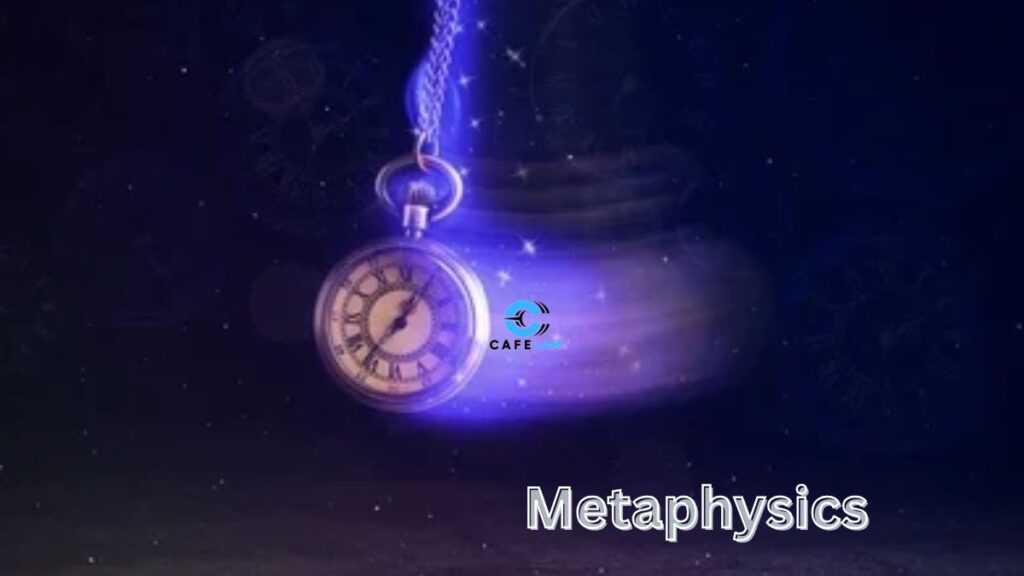Metaphysics, often considered a lofty and abstract branch of philosophy, explores the fundamental nature of reality, existence, and being. While it may seem disconnected from the practicalities of everyday life, metaphysical principles influence how we think, make decisions, and perceive the world. Abstract thinking, a cornerstone of metaphysics, allows us to examine life’s complexities beyond the surface, leading to profound insights and practical solutions. This article explores how metaphysics and abstract thinking shape our daily lives and offers ways to harness these ideas for personal growth and problem-solving.
- What Is Metaphysics?It is the philosophical study of the nature of reality, existence, and the universe. Its roots trace back to ancient Greece, with philosophers like Aristotle and Plato laying its foundation. Aristotle coined the term “metaphysics” to refer to the studies that go beyond the physical sciences, delving into questions about existence, time, causality, and the nature of being.
Key areas of metaphysical inquiry include:
- Ontology: The study of being and existence.
- Cosmology: Understanding the origin and structure of the universe.
- Spiritual Philosophy: Examining abstract ideas related to existence and consciousness.
Unlike sciences that focus on measurable phenomena, metaphysics addresses questions that transcend empirical observation, making it essential for developing abstract reasoning and critical thinking skills.
- The Role of Abstract Thinking in Metaphysics Abstract thinking involves moving beyond concrete, observable facts to explore concepts, ideas, and connections. Metaphysics relies heavily on this type of thinking, as it examines intangible concepts such as time, space, and causality.
In everyday life, abstract thinking enables us to:
- Analyze complex situations.
- Predict potential outcomes.
- Draw connections between seemingly unrelated ideas.
For example, when making a significant life decision, abstract thinking allows us to consider long-term consequences and potential ripple effects. By cultivating this skill, we can better navigate uncertainties and make more informed choices.
- Metaphysical Concepts and Their Practical Applications
The Nature of Reality
Metaphysics encourages us to question the nature of reality. Is it purely objective, shaped by facts, or is it subjective, influenced by individual perception? Understanding these perspectives fosters empathy and improves communication.
Practical Application: In relationships, recognizing that others may perceive the same situation differently can help resolve conflicts and build stronger connections. For example, during disagreements, acknowledging another person’s reality can create a foundation for mutual understanding.
The Concept of Time
Metaphysics explores time as both linear and cyclical. Linear time views events as a sequence, while cyclical time emphasizes recurring patterns.
Practical Application: Adopting a metaphysical perspective on time can enhance productivity. Viewing time as a resource to be managed helps set priorities, while recognizing patterns in behavior can lead to better planning and goal-setting. For instance, reflecting on past successes and failures can guide future actions.
World of Frehf : Everything You Need to Know in 2025
Cause and Effect (Causality)
Causality is a fundamental concept in metaphysics, examining how events influence one another. This principle helps us understand the consequences of our actions.
Practical Application: By identifying cause-and-effect relationships, we can anticipate outcomes and avoid potential pitfalls. For example, understanding the impact of daily habits on long-term health empowers us to make healthier choices.
- Metaphysics in Personal Growth and Mindset
Understanding Purpose and Existence
Metaphysics delves into existential questions, such as the meaning of life and the purpose of existence. While these inquiries are abstract, they have practical implications for personal growth.
Practical Application: By reflecting on purpose, individuals can align daily actions with long-term goals. For instance, someone seeking fulfillment might pursue a career or hobby that resonates with their values, creating a deeper sense of satisfaction.
Overcoming Limitations
Metaphysical principles, such as potentiality, suggest that limitations are often self-imposed. Recognizing the potential for growth can help individuals transcend perceived boundaries.
Practical Application: Challenging self-doubt and embracing change can lead to personal development. For example, adopting a growth mindset encourages continuous learning and resilience in the face of challenges.
- Applying Metaphysics to Modern Issues
Technology and Metaphysics
The rapid advancement of technology raises metaphysical questions about artificial intelligence, consciousness, and the nature of existence.
Practical Application: By considering the ethical implications of AI and other technologies, we can make informed decisions that prioritize humanity’s well-being. For example, developers of AI systems might balance efficiency with ethical considerations to ensure equitable outcomes.
Erothto Concept: Origins, Use, and Cultural Significance
Sustainability and Interconnectedness
Metaphysical ideas of unity emphasize the interconnectedness of all beings and the environment.
Practical Application: Recognizing this interconnectedness can inspire sustainable practices. Simple actions, such as reducing waste and conserving energy, contribute to a healthier planet and reflect a metaphysical appreciation of unity.
- Developing Abstract Thinking Skills Cultivating abstract thinking is essential for applying metaphysical principles in daily life. Here are practical ways to enhance this skill:
- Journaling: Writing about abstract ideas or reflecting on experiences encourages deeper thinking.
- Meditation: Focusing on abstract concepts, such as unity or time, can enhance mental clarity.
- Studying Philosophy: Exploring metaphysical texts broadens perspectives and nurtures critical thinking.
- Asking Questions: Challenge assumptions and consider alternative viewpoints to expand understanding.
Recommended resources include works by Aristotle, Immanuel Kant, and modern metaphysicians who explore the intersection of philosophy and everyday life.
Metaphysics, though often seen as abstract and theoretical, holds profound relevance for daily life. By exploring questions about reality, time, and causality, and embracing abstract thinking, we can enhance self-awareness, improve decision-making, and navigate life’s complexities with greater insight. Integrating metaphysical principles into modern challenges, such as technology and sustainability, fosters a deeper connection to the world and inspires meaningful change.
As you delve into metaphysics, you may find that its insights provide not only intellectual enrichment but also practical tools for leading a balanced, purposeful life. So, embrace the abstract and let metaphysics guide you toward a deeper understanding of yourself and the world around you.







